holocaust survivors
Meeting holocaust survivors’ daily needs in addition to providing special holiday food boxes for Passover, Rosh Hashanah and Chanukah.
a great need for help
restoring the dignity
In another decade, most Holocaust survivors won’t be in our midst. This is the season we need to care for them.
There is an estimated 200,000 Holocaust survivors in Israel, and a quarter of them are living in poverty. The number of survivors shrinks every month, as the population grows increasingly elderly and frail. The Holocaust ended in 1945 and the survivors today were children at that time. Now they are in the final chapter of their lives.
Many Holocaust survivors came to Israel after World War II and have built lives and families there. Many others, however, were trapped in the former Soviet Union when the war ended. When it finally became possible to come to Israel, they began to arrive. This group of immigrant Holocaust survivors many of them Russian or German speakers are in great need of assistance.
When they arrived, they were already senior citizens and often had no financial reserves. They forfeited their small pensions from their former countries when they came to Israel. Those who arrived by 1953 are provided a small pension of around $800 USD per month, but those that arrived after that date do not qualify for the same assistance even if they were in the same family or camp.
Even if they do get a tiny pension it is not nearly enough to live on.
The rent for even small poorly equipped apartment, in need of repair, is more than $1,000 USD per month. In order to make ends meet, elderly survivors often live together in a small apartment. This is why it is so important to help support them with food and in any way that we can.
There is an estimated 200,000 Holocaust survivors in Israel, and a quarter of them are living in poverty. The number of survivors shrinks every month, as the population grows increasingly elderly and frail. The Holocaust ended in 1945 and the survivors today were children at that time. Now they are in the final chapter of their lives.
Many Holocaust survivors came to Israel after World War II and have built lives and families there. Many others, however, were trapped in the former Soviet Union when the war ended. When it finally became possible to come to Israel, they began to arrive. This group of immigrant Holocaust survivors many of them Russian or German speakers are in great need of assistance.
When they arrived, they were already senior citizens and often had no financial reserves. They forfeited their small pensions from their former countries when they came to Israel. Those who arrived by 1953 are provided a small pension of around $800 USD per month, but those that arrived after that date do not qualify for the same assistance even if they were in the same family or camp.
Even if they do get a tiny pension it is not nearly enough to live on.
The rent for even small poorly equipped apartment, in need of repair, is more than $1,000 USD per month. In order to make ends meet, elderly survivors often live together in a small apartment. This is why it is so important to help support them with food and in any way that we can.
poverty and seclusion
holocaust survivors in need
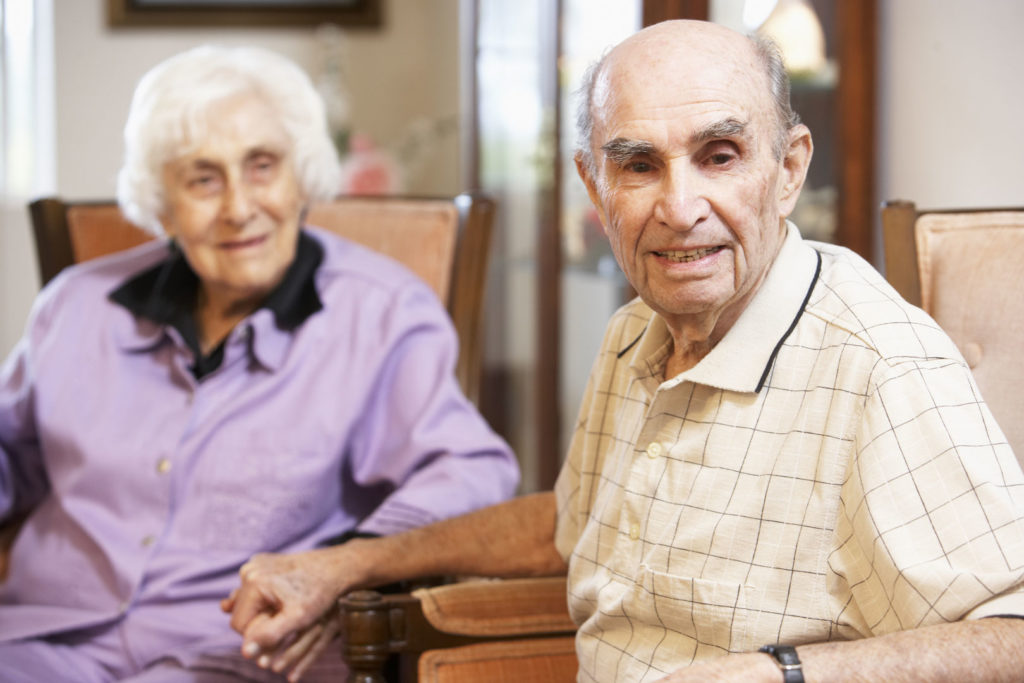
Did you know that many who miraculously escaped death during the Holocaust are living out their final years in poverty and seclusion?
They are in need of your help because they live at or below the poverty line and have to choose between buying food and other essentials like lifesaving medicines, shelter and heat in the winter months.
They are in need of your help because they live at or below the poverty line and have to choose between buying food and other essentials like lifesaving medicines, shelter and heat in the winter months.
10,000
elderly and holocaust survivors assisted
As God provides, LHM is assisting over 10,000 elderly and Holocaust Survivors by meeting their daily needs in addition to providing special holiday food boxes for Passover, Rosh Hashanah and Chanukah.
partners in this cause
supporting holocaust survivors
Larry Huch Ministries has the honor and privilege to lovingly assist thousands of Holocaust survivors through our partnership with two amazing Jewish organizations in Israel!
In 2018 we began our commitment to the Haifa Home For Holocaust Survivors (Yad Ezer Lechaver’ Foundation) and in 2020 we expanded our efforts to include the Amigour Project.At Yad Ezer we provide funding for the facilities and food distribution for 300 elderly Jews that depend on this organization for meals, fellowship and in some cases shelter and clothing.
As God provides we also provide support for their Meals on Wheels program, which delivers hot meals and other basic food essentials daily to over 2,000 elderly Holocaust Survivors living throughout Northern Israel.
Through your generosity we are also able to provide much needed assistance to another 7,500 elderly survivors associated with Amigour. In Hebrew, Amigour means “A home for my people” and was established to provide essential care for disadvantaged elderly in 57 housing projects throughout Israel and 2 chronic care facilities that provide round the clock nursing homes and medical care.
In 2018 we began our commitment to the Haifa Home For Holocaust Survivors (Yad Ezer Lechaver’ Foundation) and in 2020 we expanded our efforts to include the Amigour Project.At Yad Ezer we provide funding for the facilities and food distribution for 300 elderly Jews that depend on this organization for meals, fellowship and in some cases shelter and clothing.
As God provides we also provide support for their Meals on Wheels program, which delivers hot meals and other basic food essentials daily to over 2,000 elderly Holocaust Survivors living throughout Northern Israel.
Through your generosity we are also able to provide much needed assistance to another 7,500 elderly survivors associated with Amigour. In Hebrew, Amigour means “A home for my people” and was established to provide essential care for disadvantaged elderly in 57 housing projects throughout Israel and 2 chronic care facilities that provide round the clock nursing homes and medical care.
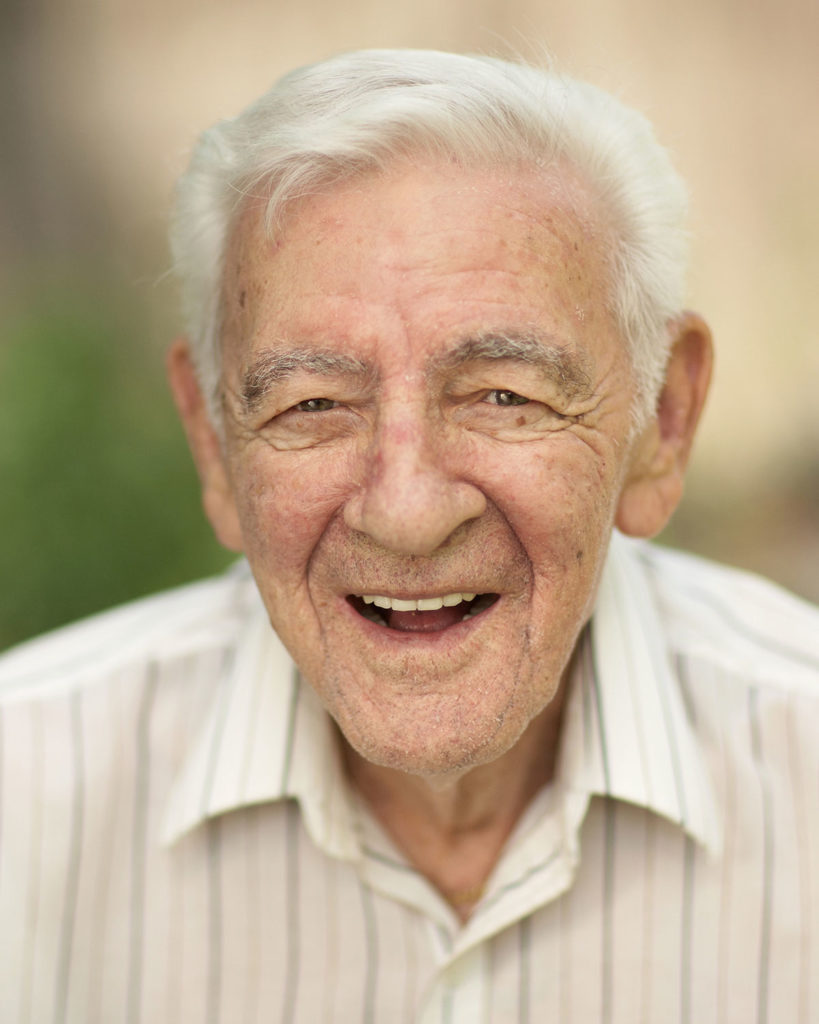
join us and make a difference today
true testimony
Miriam remembers the day the Nazis arrived
Just five days after their initial attack on Warsaw, Nazi troops marched into her small town that was in Poland bordering Germany. They closed all Synagogues, executed the first Jew they saw and assigned the rest of them to hard labor.
Miriam and other young girls had the grueling task of clearing snow and stones off a field, only to be ordered to put the stones back the very next day. Anyone not working hard enough, in the eyes of the Nazis, was ruthlessly beaten. Before long, Miriam and the others were transported to Ghetto Lodz. They lived there for a month: Sleeping in the cold, winter streets on makeshift straw mattresses before being marched back to town, where another Ghetto had been prepared. One by one, Miriam’s sister, brother, and grandmother were sent off to different camps; she never saw them again. Miriam can still recall the sounds of wailing and sobbing as family members were separated.
In 1942, Miriam was sent back to Ghetto Lodz, a place of starvation, sickness and constant death, only to be taken to Auschwitz-Birkenau two years later. The chaos which greeted them and ensuing months of living constantly surrounded by death were, in Miriam’s words, “beyond the realm of human language” to describe.
Thankfully, this nightmare ended when the camp was liberated in the spring of 1945.
Miriam’s parents and all but one of her siblings did not survive the war. Once freed, Miriam began her journey to the land of Palestine – soon to become Israel – on the ‘Biria.’
In this ship, the Jewish passengers were packed together like sardines with hardly any access to food, but the hope of arriving in a Jewish homeland kept them alive.
Upon arrival, British troops detained Miriam and the other passengers on charges of traveling to Palestine illegally, but as British rule in Palestine was withering, the war victims were eventually released.
Miriam recalls dancing in the streets on the day Israel declared statehood. After years of living in a nightmare, she was now witnessing a dream: The Jewish people finally had a home! Today Miriam is a proud mother of three, grandmother of nine, and great grandmother of seven beautiful children.
Miriam is one of the residents at the “Haifa Home for Holocaust Survivors”. As her health diminishes, she is grateful for the care and companionship she enjoys at the Home. You can contribute to this work, which ensures these precious survivors are surrounded by love in the remaining years of their lives.
Miriam and other young girls had the grueling task of clearing snow and stones off a field, only to be ordered to put the stones back the very next day. Anyone not working hard enough, in the eyes of the Nazis, was ruthlessly beaten. Before long, Miriam and the others were transported to Ghetto Lodz. They lived there for a month: Sleeping in the cold, winter streets on makeshift straw mattresses before being marched back to town, where another Ghetto had been prepared. One by one, Miriam’s sister, brother, and grandmother were sent off to different camps; she never saw them again. Miriam can still recall the sounds of wailing and sobbing as family members were separated.
In 1942, Miriam was sent back to Ghetto Lodz, a place of starvation, sickness and constant death, only to be taken to Auschwitz-Birkenau two years later. The chaos which greeted them and ensuing months of living constantly surrounded by death were, in Miriam’s words, “beyond the realm of human language” to describe.
Thankfully, this nightmare ended when the camp was liberated in the spring of 1945.
Miriam’s parents and all but one of her siblings did not survive the war. Once freed, Miriam began her journey to the land of Palestine – soon to become Israel – on the ‘Biria.’
In this ship, the Jewish passengers were packed together like sardines with hardly any access to food, but the hope of arriving in a Jewish homeland kept them alive.
Upon arrival, British troops detained Miriam and the other passengers on charges of traveling to Palestine illegally, but as British rule in Palestine was withering, the war victims were eventually released.
Miriam recalls dancing in the streets on the day Israel declared statehood. After years of living in a nightmare, she was now witnessing a dream: The Jewish people finally had a home! Today Miriam is a proud mother of three, grandmother of nine, and great grandmother of seven beautiful children.
Miriam is one of the residents at the “Haifa Home for Holocaust Survivors”. As her health diminishes, she is grateful for the care and companionship she enjoys at the Home. You can contribute to this work, which ensures these precious survivors are surrounded by love in the remaining years of their lives.
Answered prayers :
gratitute
more testimonies
Tova, who is now 94, was born in Kishinev, Poland. She was the youngest of 7 children.
When the war began Tova was 14, her eldest brother was 30, and he was married with a baby. All members of the family, including their grandmother, lived at home with their parents until 1942. But during the beginning of the war, the Nazis forced them to move into a small apartment.
Later on that year, 4 sisters were transferred to Auschwitz together with the parents and grandmother. All 4 sisters were separated and were forced to different camps.
Like many others, they suffered from terrible hunger, diseases, cold, anxieties, fears of death, uncertainty about their lives, and abuse.
Tova was given work in a factory that produced sesame. She worked 16 hours a day in shifts and until 1945 when the Russians released them. However, the Russians were not any less cruel.
After the release from the camps, she went to Prague and met her other sisters. Their target was to reach the Polish border. The Soldiers at the border refused to let them pass. Afterward, they managed to leave for Germany. There, she met her husband. Her first son was born there. In 1948 they immigrated to Israel. In Haifa, they opened a Jewelry store. After her father had deceased she went to live with her sister in the USA and after 32 years she returned to Israel.
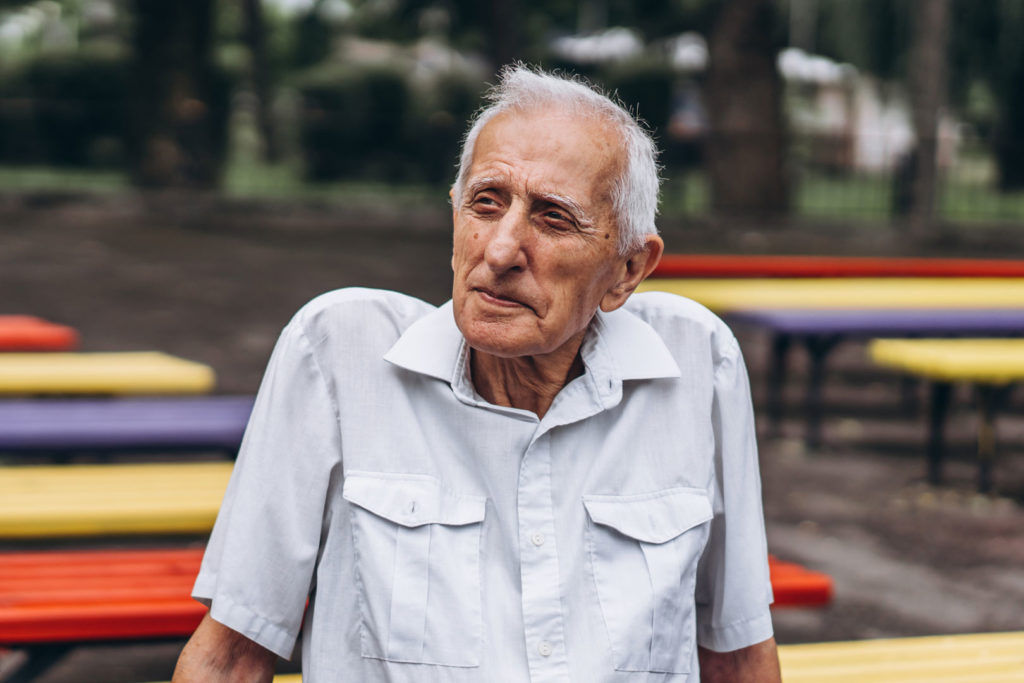
Zipora , is now 83, she was born in Romania along with her 6 siblings and immigrated with her family to Israel in 1950. She is the only child in her family that survived the Holocaust.
In 1941, the Romanian soldiers ordered the Jews to leave their homes. Her father was beaten severely while shaving his beard and was taken to a concentration camp until the war ended. Zipora and her family did not know where he was taken.
Commander Antonesku made a “deal” with the Nazis that he would leave the Jews in Romania for labor work. However, the mother and the rest of the family were taken to the trains. These trains had no windows and no air for them to breathe. The train stopped only to “collect” more Jews on the way. They have arrived at a city starving, freezing without anything, and were abused and beaten.
From there they were transferred to a shed in a synagogue. Here mother cooked for some Christians for food and her biggest brother found work in a hardware store. Another sister was baby-sitting for kids. This is how they survived during the years of the war. Until Zipora was 10 years old her mother taught her instead of going to a school.
When the war ended, her father came back looking like a skeleton and without teeth but alive. One of her sisters passed away from pneumonia, her baby brother also passed away because he starved to death. All of her other brothers and sisters from both sides of the parents were killed in Auschwitz.
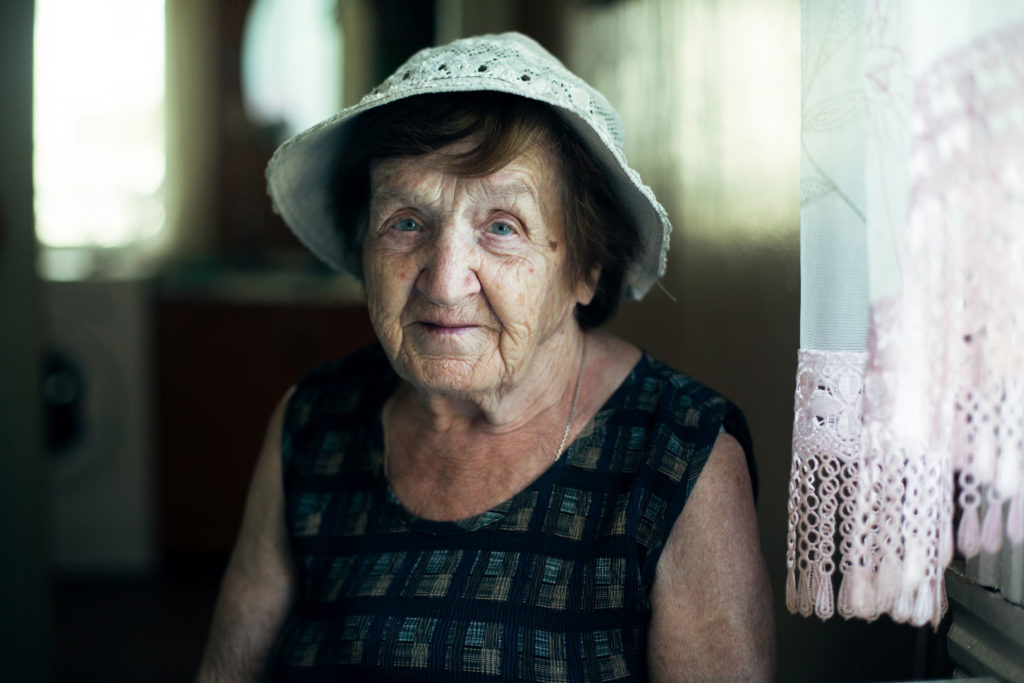
Sara Berkowitz , When the war began, I had my parents and lots of uncles and aunts. I was an only child. When I was 7 years old, I was supposed to go to school, but I was forbidden to do so because I was a Jew. My parents took a private teacher who came home and taught me everything.
The Nazis forced the Romanians to send all Jews to the trains to go to Transnistria, Moldova. It was a very cold winter; we had no clothes because we were forced to leave our homes at once and without time to take some things with us.
Afterward, we were forced to cross the river in small boats made of wood tied together. The purpose was that they planned on us drowning while crossing the river to Mogilev. From Mogilev we were supposed to be transferred to villages ruled by Nazis, so they will be able to kill us.
But my father understood the situation and bribed some of the guards. We stayed outside and our father built us shelter using the mud. All our family: parents, grandparents, uncles, and aunts slept on the floor together so we could warm each other in the terribly cold winter. We remained like that for a year.
Afterward, my father found shelter with other families. Then he initiated and built a food factory, so he would have a working permit. This helped us a little.
In 1944 the army released Mogilev and all my family returned to Romania. I was 10 years old at that time. In 1950, We immigrated to Israel, I was able to finish high-school. In 1957, I married and raised a family.
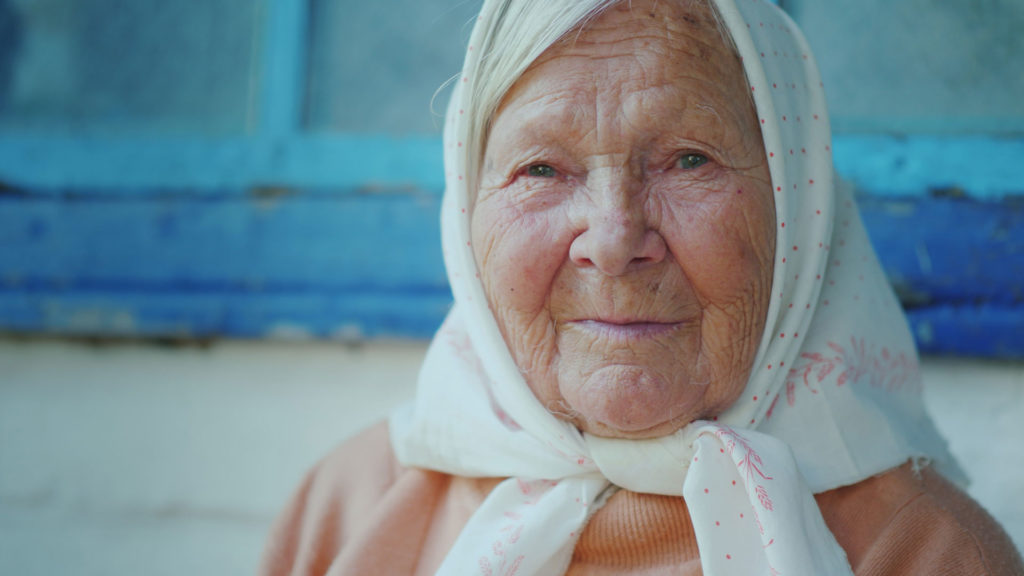
Shaul Gurka’s , At the beginning of the war, my father was forced into severe labor work. After he returned back home, totally broken, he became ill with Typhus and passed away. My mother was then left with 7 children.
A few days later, we were transferred to a small village next to Gurietz. We noticed that there were no more Jews there and there had been many before. We quickly dug a big hole inside a home, in order to hide away from the Nazis. When the Nazis came looking for us, we were hiding, but we had left the small baby upstairs and she started to cry. They ended up taking her with them.
After they left, we ran to the forests and saw hundreds of dead bodies on our way. The roads were full of Nazis so we kept running.
When we were deep into the forest we found some students hiding there sitting near a fire. They did not want us around them, but we were so cold we ran to the fire.
I was so cold I got really close to the fire, so close burned myself. Then my mother had to carry me on her shoulder.
The students gave us a shovel so we could dig a deep hole and climbed into it. It was warmer in there and as we sat in the hole all night we could hear gunshots. Mom asked the eldest brother, Jacob to check to see what had happened and when he looked out the top of the hole he could see that all the students had been shot.
Miraculously, the Nazis came by and felt mercy for us. They took us to a Polish farmer who was very rich. He told us to sleep in the barnyard and his wife gave us food. But she told us that we must leave their home at night.
That night we returned to our home Gurietz and we hid in the basement. But soon after our Polish neighbors saw us and called the police, so my mother took us immediately to the attic so we could hide there. When the Polish police arrived they did not find us.
My older brother went out to find us food when suddenly a big division of Nazis came. So we ran into the forest again hoping to hide. The Nazis ended up killing three of my brothers each time one of them would leave to find food for us.
Desperate to keep moving and not be found, we then ran to a synagogue and hid under the stairs. My mother collected some food from the fields for us. Finally, a Russian division came and the head of the unit took us to Zamosh and saved our lives.
At that point, my mother had decided to put us in an orphanage in Lublin to help us get the care we needed. From there we were transferred to Czechoslovakia and from there to Germany. We stayed in Ansbach for a few years and then immigrated to Israel with my mother in 1948.
My mother became sick on the way to Israel, so at the age of 13, I had to go to work. When I was 18, I got drafted to the army. After some years I got married.

Previous
Next
